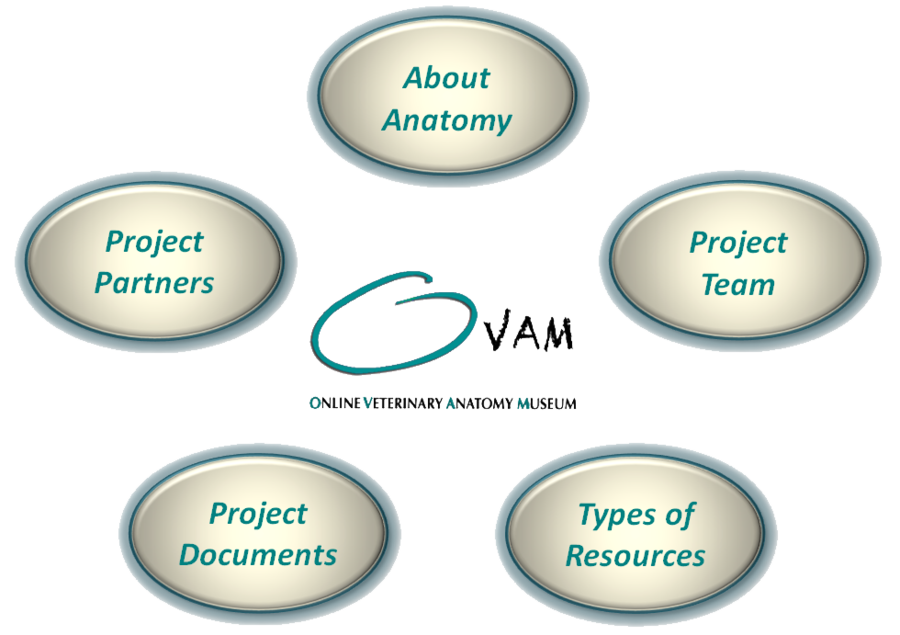Difference between revisions of "OVAM"
| Line 8: | Line 8: | ||
<br><br><br> | <br><br><br> | ||
<b><big> | <b><big> | ||
| − | The Online Veterinary Anatomy Museum (OVAM) project is funded by JISC as part of the Content Programme 2011-2013. It aims to provide access to veterinary anatomical resources in the form of a virtual museum | + | The Online Veterinary Anatomy Museum (OVAM) project is funded by JISC as part of the Content Programme 2011-2013. It aims to provide access to veterinary anatomical resources in the form of a virtual museum. |
OVAM will provide access to a comprehensive and pedagogically structured set of veterinary anatomical resources. These will be aggregated and ordered in an environment which will make them easily discoverable by different cohorts of learners. Key to the success of this project will be the development of effective methodologies to embed and integrate these materials within a traditional curriculum to maximise exposure, uptake and sustainability. | OVAM will provide access to a comprehensive and pedagogically structured set of veterinary anatomical resources. These will be aggregated and ordered in an environment which will make them easily discoverable by different cohorts of learners. Key to the success of this project will be the development of effective methodologies to embed and integrate these materials within a traditional curriculum to maximise exposure, uptake and sustainability. | ||
Revision as of 13:42, 26 October 2012

The Online Veterinary Anatomy Museum (OVAM) project is funded by JISC as part of the Content Programme 2011-2013. It aims to provide access to veterinary anatomical resources in the form of a virtual museum.
OVAM will provide access to a comprehensive and pedagogically structured set of veterinary anatomical resources. These will be aggregated and ordered in an environment which will make them easily discoverable by different cohorts of learners. Key to the success of this project will be the development of effective methodologies to embed and integrate these materials within a traditional curriculum to maximise exposure, uptake and sustainability.
The official start of the project was the 1st November 2011 and it will run for 12 months.
Visit our blog for the latest news.
| This project was funded by the Jisc Content Programme for 2011-13. Jisc inspires UK colleges and universities in the innovative use of digital technologies, helping to maintain the UK's position as a leader in education and research. |